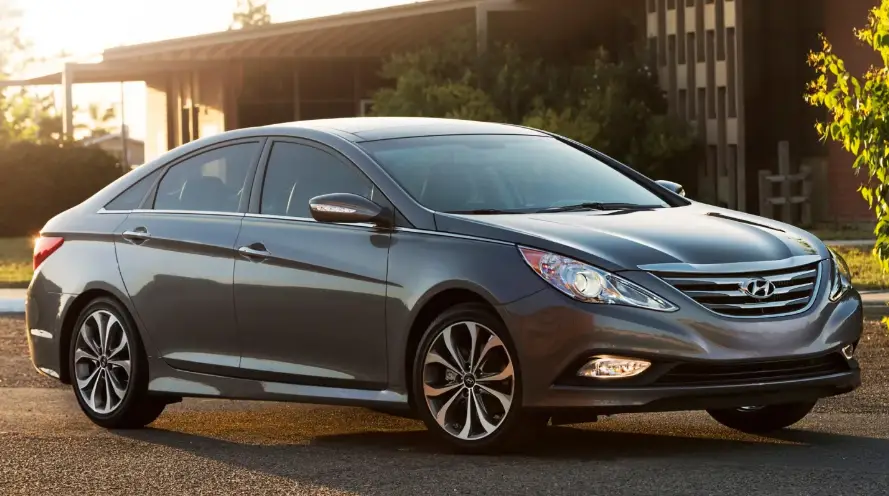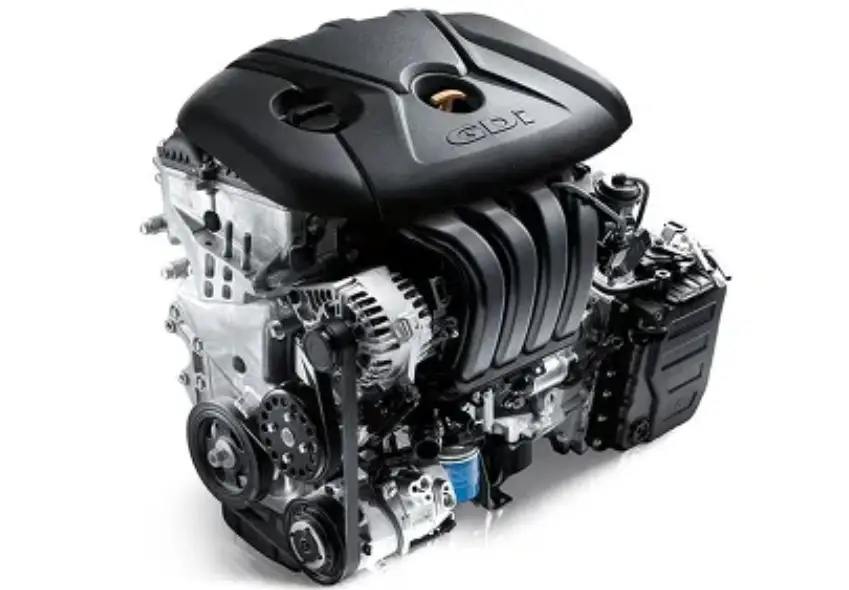Hyundai may replace the engine if it’s covered under their 10-year/100,000-mile powertrain warranty or if the issue is related to a recall, such as the Theta II engine recall. If your vehicle is out of warranty, Hyundai might still offer assistance, especially for recall-related issues or through goodwill coverage.
Hyundai has earned a reputation for manufacturing reliable and affordable vehicles, but like any automaker, they face occasional challenges with specific models or engine types. In recent years, engine-related issues in certain Hyundai vehicles have raised concerns, leaving many Hyundai owners wondering, “Will Hyundai replace my engine?”
If you’re experiencing engine problems or have concerns about your Hyundai vehicle, this detailed guide will walk you through everything you need to know about Hyundai’s engine warranty, the circumstances in which Hyundai will replace your engine, and the steps to take to get the help you need.

Contents
Hyundai’s Warranty Coverage
Hyundai provides one of the best warranties in the automotive industry, commonly referred to as “America’s Best Warranty.” Here are the key components of Hyundai’s warranty related to the engine:
1. Powertrain Warranty (10 years/100,000 miles)
The powertrain warranty covers essential components of your vehicle, including the engine, transmission, and drive axle. This warranty is available to the original owner of the vehicle and typically lasts for 10 years or 100,000 miles, whichever comes first. The powertrain warranty is the primary coverage for engine-related repairs or replacements.
2. New Vehicle Limited Warranty (5 years/60,000 miles)
In addition to the powertrain warranty, Hyundai offers a new vehicle limited warranty that covers various vehicle components for 5 years or 60,000 miles. While this warranty isn’t specific to the engine, it may cover certain engine-related issues during the early stages of vehicle ownership.
3. Extended Warranty and Protection Plans
Hyundai offers extended warranty options that can provide additional coverage beyond the standard warranty. If your powertrain warranty has expired, an extended warranty or a third-party vehicle protection plan could help cover the cost of engine repairs or replacements.
Common Engine Issues in Hyundai Vehicles
Several Hyundai models have been subject to engine-related recalls and issues in recent years. Understanding the specific engine problems associated with certain Hyundai vehicles can help you determine whether you may be eligible for an engine replacement.
1. Theta II Engine Recall
One of the most significant engine issues that Hyundai has faced involves the Theta II engine, which is used in several Hyundai and Kia models. This engine has been linked to problems such as excessive oil consumption, engine knocking, and, in some cases, engine failure. The Theta II engine recall impacted models such as the:
- Hyundai Sonata (2011–2019)
- Hyundai Santa Fe (2013–2019)
- Hyundai Tucson (2014–2015)
The recall was issued due to a manufacturing defect that could cause premature wear in the engine’s bearings, leading to engine failure. As part of the recall, Hyundai has been offering free engine inspections and, if necessary, replacing faulty engines.
2. GDI Engine Issues
Hyundai’s Gasoline Direct Injection (GDI) engines have also been the subject of complaints. Some GDI engines are prone to carbon buildup, which can lead to reduced engine performance, rough idling, and, in severe cases, engine stalling or failure.
While GDI engines have not been the focus of as large a recall as the Theta II engines, owners of vehicles with GDI engines should be aware of potential problems and seek timely maintenance and inspection to avoid long-term engine damage.
3. Rod Bearing and Metal Debris
Another common issue that has prompted engine replacements is related to rod bearing failure in some Hyundai engines. Metal debris from worn-out bearings can circulate through the engine, causing irreversible damage. This problem has affected models such as the Hyundai Veloster and the Hyundai Elantra.
Will Hyundai Replace My Engine?
The answer to whether Hyundai will replace your engine depends on several factors, including the nature of the engine problem, whether your vehicle is under warranty, and whether the issue is part of an official recall or service campaign.
1. Vehicles Under Warranty
If your Hyundai vehicle is still under the 10-year/100,000-mile powertrain warranty and you experience an engine problem, Hyundai will typically cover the cost of engine repairs or replacement, provided that the issue is due to a manufacturing defect. The powertrain warranty is limited to the original owner, so if you purchased your vehicle used, the warranty may not apply unless the vehicle is certified pre-owned (CPO) and comes with transferable coverage.
2. Vehicles Out of Warranty
If your vehicle’s warranty has expired, Hyundai may not cover the full cost of engine repairs or replacement. However, there are some exceptions, such as:
- Recalls and Service Campaigns: If your engine problem is related to a recall, like the Theta II engine recall, Hyundai is obligated to inspect and, if necessary, replace your engine, even if your vehicle is out of warranty.
- Customer Goodwill: In some cases, Hyundai may offer to cover part of the repair or replacement costs as a goodwill gesture, especially if your vehicle has a documented history of regular maintenance and low mileage.
3. Negligence and Misuse
If your engine problem is the result of neglect, improper maintenance, or misuse of the vehicle, Hyundai may deny coverage for an engine replacement. For example, failure to adhere to the recommended oil change schedule or using incorrect engine oil can void your warranty. It’s essential to keep records of all maintenance work performed on your vehicle to avoid any issues with warranty claims.

Steps to Take If Need an Engine Replacement
If you suspect that your Hyundai vehicle needs an engine replacement, follow these steps to ensure a smooth process:
1. Verify Your Warranty Status: Start by determining whether your vehicle is still under the powertrain warranty or if your engine issue is covered by a recall. You can check your vehicle’s warranty status by contacting Hyundai’s customer service or visiting their website and entering your Vehicle Identification Number (VIN).
2. Visit an Authorized Hyundai Dealership: If your vehicle is under warranty or subject to a recall, take it to an authorized Hyundai dealership for inspection. The dealership will perform a diagnostic test to identify the problem and determine whether an engine replacement is necessary. Be prepared to provide your vehicle’s maintenance records, as this information may be requested to verify warranty coverage.
3. Request a Loaner Vehicle: Engine replacements can take several days or even weeks to complete. If your vehicle is under warranty, Hyundai may provide you with a loaner vehicle at no cost while your engine is being replaced. Be sure to inquire about this option when scheduling your appointment with the dealership.
4. Keep All Documentation: Throughout the process, keep copies of all communication, work orders, and repair receipts. This documentation will be helpful if you need to escalate your case to Hyundai’s corporate customer service team or pursue legal action.
What to Do if Hyundai Denies Your Claim
If Hyundai denies your request for an engine replacement, you have several options:
- Escalate the Issue: Contact Hyundai’s customer service department and explain your case. Provide any supporting documentation, such as maintenance records and diagnostic reports, to strengthen your argument.
- File a Complaint with NHTSA: If your engine problem is related to a safety issue, such as engine stalling or fire risk, you can file a complaint with the National Highway Traffic Safety Administration (NHTSA). If enough complaints are filed, NHTSA may investigate and potentially issue a recall.
- Seek Legal Assistance: If Hyundai refuses to honor your warranty or recall claim, you may want to consult with an attorney who specializes in automotive lemon laws or warranty disputes.
Frequently Asked Questions
Here are some FAQs about Hyundai engine replacement –
1. How long does it take for Hyundai to replace an engine?
The engine replacement process typically takes 1–2 weeks, depending on the dealership’s workload and parts availability. In some cases, it may take longer if the replacement engine needs to be ordered.
2. Is an engine replacement covered under Hyundai’s warranty?
Yes, engine replacements are covered under Hyundai’s 10-year/100,000-mile powertrain warranty if the issue is due to a manufacturing defect. Recall-related engine replacements are also covered, even if the vehicle is out of warranty.
3. What models are affected by Hyundai’s engine recalls?
Several Hyundai models, including the Sonata, Santa Fe, Tucson, and Veloster, have been affected by engine recalls, particularly those equipped with the Theta II engine.
4. Can I still get an engine replacement if my warranty has expired?
In some cases, Hyundai will replace the engine for free if it’s related to a recall. If your vehicle is out of warranty but not part of a recall, you may still be eligible for partial coverage under Hyundai’s goodwill policy.
5. What happens if my Hyundai engine fails after the warranty expires?
If your engine fails after the warranty expires and it’s not covered by a recall, you will likely be responsible for the repair or replacement costs. However, contacting Hyundai customer service may result in partial assistance, especially if you’ve maintained your vehicle properly.
Conclusion
Hyundai is committed to addressing engine problems in their vehicles, particularly those related to recalls like the Theta II engine issue. Whether or not Hyundai will replace your engine depends on your vehicle’s warranty status, the nature of the engine issue, and whether the problem is part of an official recall. Staying proactive with maintenance, keeping detailed records, and addressing engine problems early can help you avoid costly repairs and increase the likelihood of getting your engine replaced when necessary.